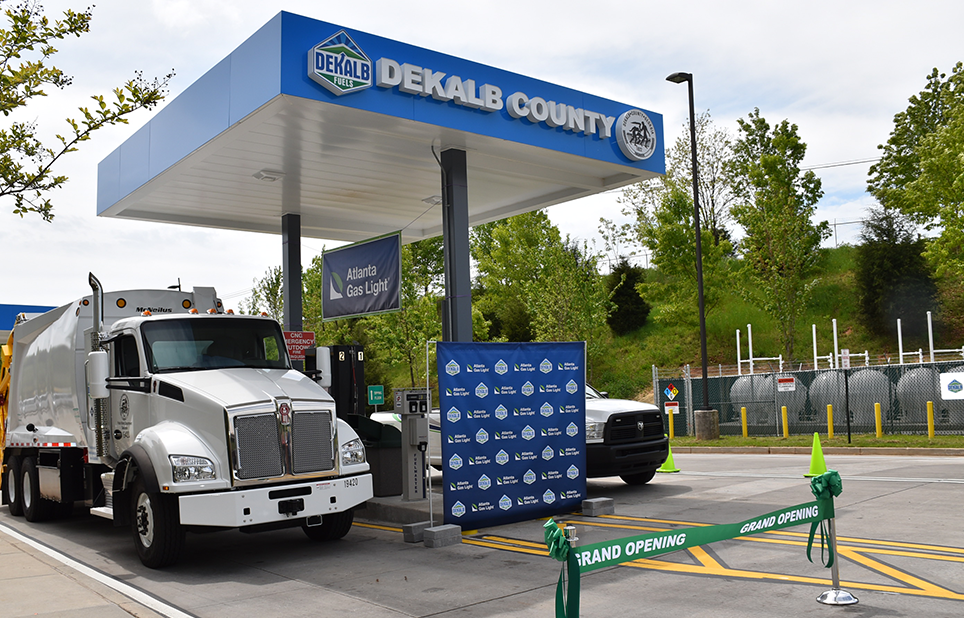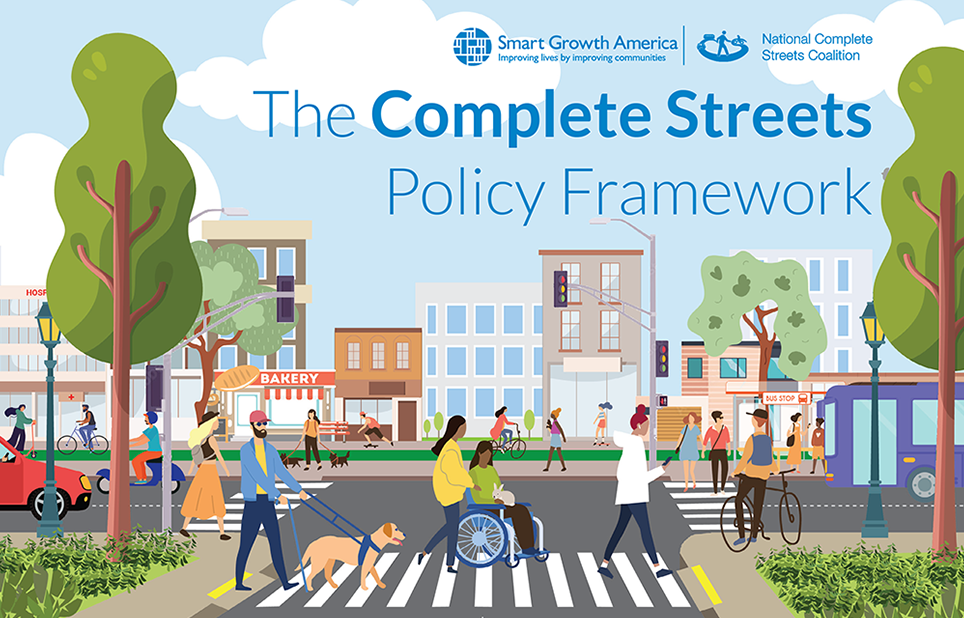| Get Involved with current Transportation Projects: | What can you do? | |||
PATHLINK WAYFINDING | DEKALB TRAIL AND GREENWAY MASTER PLAN | SUSTAINABLE TRANSPORTATION | ||
The Pathlink Wayfinding project is an endeavor by DeKalb County Planning and Sustainability to promote use of the Stone Mountain Trail by providing wayfinding signage and safety improvements in neighborhoods north of Memorial Drive. | DeKalb County Department of Recreation, Parks, and Cultural Affairs invites community members to help shape the future of the County's trail and greenway network through the Trail and Greenway Master Plan planning process. | Learn more about how sustainable transportation options can help dramatically reduce greenhouse gas emissions. | ||
 |  |  | ||
GREEN FLEET POLICY | ALTERNATIVE FUELS FOR DEKALB'S FLEET | ELECTRIC VEHICLE INFRASTRUCTURE | ||
On October 1, 2014, the DeKalb County Green Fleet Policy was officially adopted by the Department of Fleet Management. It states DeKalb “shall give preference to the purchase and use of fuel efficient and lowest emission vehicles and equipment that both meet the intended use of the Fleet unit and are reasonably cost competitive over the life of the unit.” Since 2014, DeKalb County Fleet Management has frequently placed in the top 10 of 100 Best Fleets from across North America, ranking #1 Best Fleet in 2018. | As of 2020 DeKalb County’s manages 3 Compressed Natural Gas (CNG) fueling stations and 6 plug-in electric fueling stations. The county’s use of natural gases exceeded diesel by 10% at the end of 2020. DeKalb CNG Vehicles | Clean Cities Georgia DeKalb County Compressed Natural Gas Fueling Stations
| DeKalb County has installed electric vehicle charging stations at several locations across the county. Some including:
New! Additional publicly accessible community EV infrastructure is planned throughout DeKalb County, funded in part by the U.S. Department of Transportation (USDOT) Charging and Fueling Infrastructure (CFI) Discretionary Grant Program. See a map of the EV charging proposed locations. In August 2024, DeKalb County Board of Commissioners approved a zoning code update establishing supplemental guidelines for the installation and operation of Electric Vehicle Charging Stations. Key Highlights of the Ordinance are Universal Access, Design Standards, Lighting and Safety, Signage Requirements, and Parking Integration. See details here. | ||
 |  |  | ||
COMPLETE STREETS POLICY | IMPROVED TRAFFIC SIGNAL SYNCHRONIZATION | SAFE ROUTES TO SCHOOL PROGRAM | ||
Complete Streets, a program of Smart Growth America, is an approach to planning, designing, building, operating, and maintaining streets that enables safe access for all people who need to use them, including pedestrians, bicyclists, motorists, and transit riders of all ages and abilities. DeKalb County’s Complete Streets Policy was put into effect in 2014 and serves as a guide during the planning and development process. Visit Smart Growth America to learn more about the Complete Streets process and approach. DeKalb's Comprehensive Transportation plan reflects a Complete Streets approach in Chapter 06: Surface Transportation Policy Recommendations | DeKalb County's Transportation Division uses an Advanced Traffic Management System (ATMS) Plan to operate and upgrade its current traffic equipment. Through this plan the county makes updates to traffic signal timing, and checks that current functions are appropriate. In addition to the ATMS Plan, DeKalb County’s Transportation plan identified priority projects for a 30-year planning period for traffic synchronization improvements. Traffic signal synchronization allows for minimal stopping which helps reduce travel times. Cars use less gas because stop and go travel and idling at red lights is reduced. Vehicle emissions are reduced because cars run more efficiently. | The Safe Routes to School program aims to create safer, healthier, and more sustainable communities by encouraging and enabling children to walk and bike to school. It combines infrastructure improvements, education, encouragement, enforcement, evaluation, and equity to achieve its goals. The program's benefits include improved health and safety, reduced emissions, less traffic congestion, and increased accessibility. DeKalb County School system partners with the Georgia DOT to participate in this program. To learn more, visit Georgia Safe Routes to School or the Pedestrian and Bicycle Information Center.
| ||
 |  |  | ||
BICYCLE AND PEDESTRIAN FRIENDLY POLICIES | PARKING REGULATIONS | COMMUTE OPTIONS FOR EMPLOYEES | ||
The Bicycle and Pedestrian Priority Roadway Network is meant to identify facilities that are good candidates for bicycle and pedestrian travel within the unincorporated part of DeKalb County – particularly focused on roadway facilities and areas within the adjacent public right-of-way. Because DeKalb County is preparing a countywide trail master plan, decisions around the priority trail policy network will be determined through that planning process. Bicycle and Pedestrian Recommendations | DeKalb County’s development regulations encourage shared parking, joint parking and establish a maximum parking requirement. | Since 2013, DeKalb County has been an active participant in the Georgia Commute Options Program, managed by the Atlanta Regional Commission. This program offers ride matching services and incentives to DeKalb County employees who are participants. It encourages our employees to taking public, carpool, and use other forms of alternative transportation to travel to and from work.
|
 |